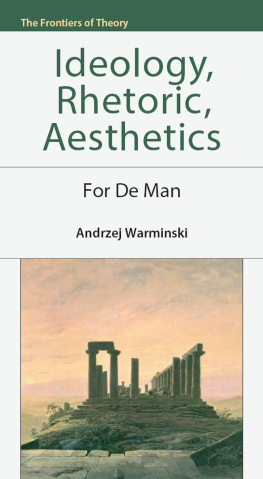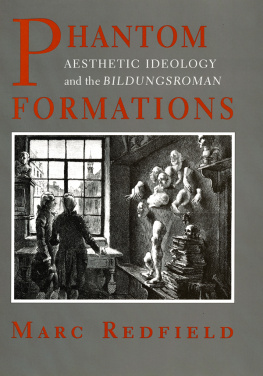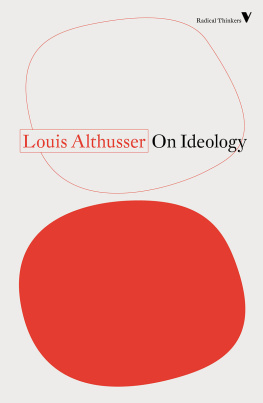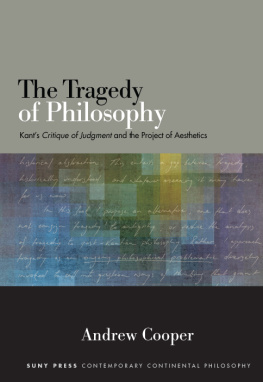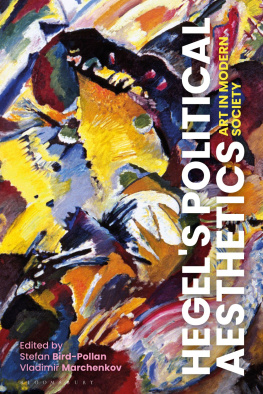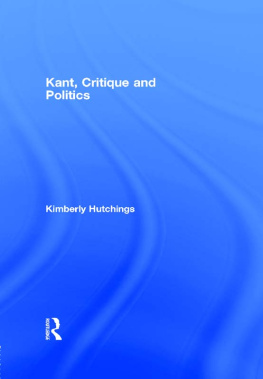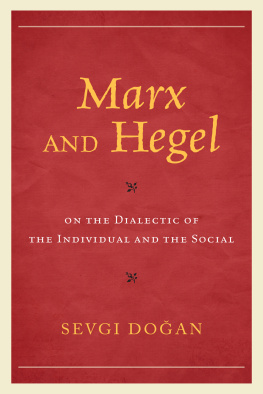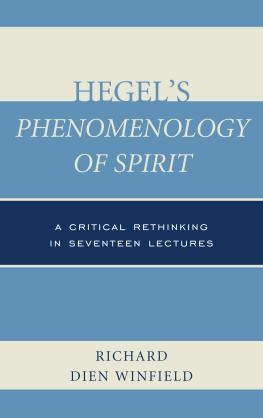Ideology, Rhetoric, Aesthetics
The Frontiers of Theory
Series Editor: Martin McQuillan
Available Titles
Reading and Responsibility:
Deconstructions Traces
Derek Attridge
Of Jews and Animals
Andrew Benjamin
Not Half No End: Militantly
Melancholic Essays in Memory of
Jacques Derrida
Geoffrey Bennington
Dream I Tell You
Hlne Cixous
Insister of Jacques Derrida
Hlne Cixous
Volleys of Humanity: Essays
19722009
Hlne Cixous
Poetry in Painting: Writings on
Contemporary Arts and Aesthetics
Hlne Cixous, ed. Marta Segarra and
Joana Mas
The Poetics of Singularity: The
Counter-Culturalist Turn in
Heidegger, Derrida, Blanchot and the
later Gadamer
Timothy Clark
About Time: Narrative, Fiction and
the Philosophy of Time
Mark Currie
The Unexpected: Narrative
Temporality and the Philosophy of
Surprise
Mark Currie
The Post-Romantic Predicament
Paul de Man, ed. Martin McQuillan
Geneses, Genealogies, Genres and
Genius
Jacques Derrida
Scandalous Knowledge: Science,
Truth, and the Human
Barbara Herrnstein Smith
To Follow: The Wake of Jacques
Derrida
Peggy Kamuf
Death-Drive: Freudian Hauntings in
Literature and Art
Robert Rowland Smith
Veering: A Theory of Literature
Nicholas Royle
Ideology, Rhetoric, Aesthetics: For De
Man
Andrzej Warminski
Material Inscriptions: Rhetorical
Reading in Practice and Theory
Andrzej Warminski
Forthcoming Titles
Working with Walter Benjamin:
Recovering a Political Philosophy
Andrew Benjamin
Readings of Derrida
Sarah Kofman, trans. Patience Moll
Hlne Cixouss Semi-Fictions: At the
Borders of Theory
Mairad Hanrahan
Against Mastery: Creative Readings
and Weak Force
Sarah Wood
The Paul de Man Notebooks
Paul de Man, ed. Martin McQuillan
Visit the Frontiers of Theory website at www.euppublishing.com/series/tfot
Ideology, Rhetoric,
Aesthetics

For De Man
Andrzej Warminski
EDINBURGH
University Press
For Katia and Adrian
Andrzej Warminski, 2013
Edinburgh University Press Ltd
22 George Square, Edinburgh EH8 9LF
www.euppublishing.com
Typeset in 10.5/13 pt Sabon by
Servis Filmsetting Ltd, Stockport, Cheshire,
and printed and bound in Great Britain by
CPI Group (UK) Ltd, Croydon CR0 4YY
A CIP record for this book is available from the British Library
ISBN 978 0 7486 8126 6 (hardback)
ISBN 978 0 7486 8127 3 (webready PDF)
ISBN 978 0 7486 8128 0 (epub)
The right of Andrzej Warminski
to be identified as author of this work
has been asserted in accordance with
the Copyright, Designs and Patents Act 1988.
Contents
Series Editors Preface
Since its inception Theory has been concerned with its own limits, ends and after-life. It would be an illusion to imagine that the academy is no longer resistant to Theory but a significant consensus has been established and it can be said that Theory has now entered the mainstream of the humanities. Reaction against Theory is now a minority view and new generations of scholars have grown up with Theory. This leaves so-called Theory in an interesting position which its own procedures of auto-critique need to consider: what is the nature of this mainstream Theory and what is the relation of Theory to philosophy and the other disciplines which inform it? What is the history of its construction and what processes of amnesia and the repression of difference have taken place to establish this thing called Theory? Is Theory still the site of a more-than-critical affirmation of a negotiation with thought, which thinks thoughts own limits?
Theory is a name that traps by an aberrant nominal effect the transformative critique which seeks to reinscribe the conditions of thought in an inaugural founding gesture that is without ground or precedent: as a name, a word and a concept, Theory arrests or misprisions such thinking. To imagine the frontiers of Theory is not to dismiss or to abandon Theory (on the contrary one must always insist on the it-is-necessary of Theory even if one has given up belief in theories of all kinds). Rather, this series is concerned with the presentation of work which challenges complacency and continues the transformative work of critical thinking. It seeks to offer the very best of contemporary theoretical practice in the humanities, work which continues to push ever further the frontiers of what is accepted, including the name of Theory. In particular, it is interested in that work which involves the necessary endeavour of crossing disciplinary frontiers without dissolving the specificity of disciplines. Published by Edinburgh University Press, in the city of Enlightenment, this series promotes a certain closeness to that spirit: the continued exercise of critical thought as an attitude of inquiry which counters modes of closed or conservative opinion. In this respect the series aims to make thinking think at the frontiers of theory.
Martin McQuillan
Authors Preface
This is a book about the work of Paul de Man on the critique of aesthetic ideology and the strange materiality a materiality without materialism, as Derrida has put it that emerges from it. It consists of three groups of essays I. Aesthetic Ideology, II. Hegel/Marx, III. Heidegger/Derrida and it is about de Man in two senses. Approximately half of the book in particular, Chapters 1, 2, 4, 9, and 10 consists of an explication and a reading of crucial articulations in de Mans project; and the other half would extend this project and its implications by a reading of material moments in Hegel, Marx, and the Marxian tradition (Lukcs, Jameson) on the one hand and in Heideggers hermeneutics (and its radicalization by Derrida) on the other. The books subtitle For De Man could be read somewhat like Althussers Pour Marx.
Paul de Mans turn to questions of ideology and the political in his late work was anything but an arbitrary choice or an accident of biography. Rather it was a move that comes directly out of de Mans particular kind of rhetorical reading i.e., one which goes through and past tropes to demonstrate how tropological systems undo themselves and produce a material remainder or residue, what de Man comes to call material inscription.but consistently enough, the critique of aesthetic ideology is to be read already in the founding texts of aesthetic theory, and it is only thanks to a relapse and a regression what de Man calls the Schillerization of Kant, for example in the reception of these texts that we can blunt their critical thrust and continue to teach literature as an aesthetic function. We are all Schillerians, says de Man at a lecture occasion, no one is Kantian any more.
In thus restoring the critical power of Kants and Hegels aesthetics, de Man accomplishes several things. For one, he begins what is perhaps the most serious and important rethinking of the question of ideology since Althussers essays of the 1960s and 1970s. He also provides us with a way to pose anew the (German Romantic) question about philosophys presentation (Darstellung) in a discourse that would lay claim to transparency on the basis of a taken for granted phenomenalization of the sign i.e., an aesthetic moment that, once read, turns out to be anything but stable. Unfortunately, de Man was not able to complete his project and left us something like an outline and some (at times cryptic) hints and indications of paths to follow. The present volume attempts to clarify this project while doing justice to its rigor and to extend it in ways productive for critical thought. It comes with a certain modest confidence or at least a willingness to take a certain risk that the kind of reading represented in these essays and their attentiveness to the question of language is needed on the contemporary critical scene, and that rather than harkening back to a past over and done with, it may open up or point to a different future.

